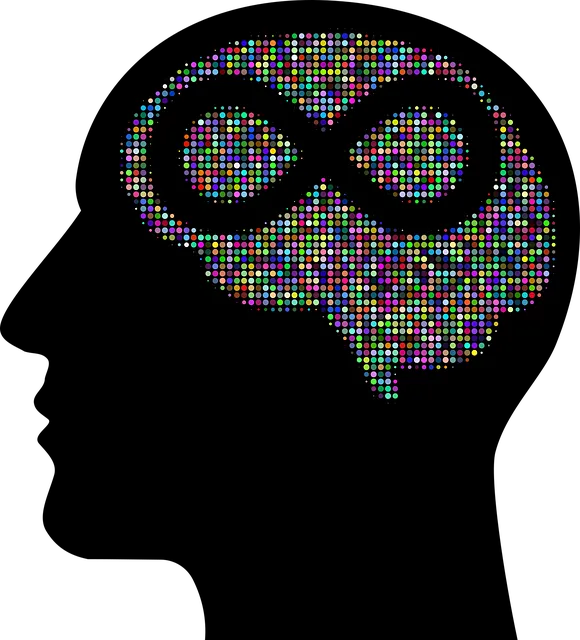Mental wellness apps are emerging as a revolutionary force in accessible mental health support, especially in urban areas like Englewood, where the Englewood Kaiser mental health programs have been successful. These apps offer on-demand tools for stress management, mindfulness, and professional therapy, bridging gaps in traditional healthcare. By integrating evidence-based practices, cultural sensitivity, and user-centric design, they aim to revolutionize psychological wellness. Features include mood tracking, mindfulness exercises, and holistic care, ensuring tailored support for diverse needs. The success of programs like Englewood Kaiser provides valuable insights for app development, emphasizing UX, marketing strategies, and monetization models to engage users and promote mental health resilience.
Mental wellness apps are gaining prominence as digital tools to support individual well-being. With a growing demand for accessible mental health solutions, understanding app development becomes crucial. This article explores the rise of mental health app development, focusing on strategies for creating effective and engaging applications. We present a case study of Englewood Kaiser Mental Health Programs, highlighting successful design elements. Additionally, key features, UX considerations, and marketing strategies are discussed to guide developers in crafting impactful mental wellness apps.
- Understanding Mental Health App Development: A Growing Need
- Englewood Kaiser Mental Health Programs: A Case Study in Effective Design
- Key Features for a Comprehensive Mental Wellness App
- User Experience (UX) Considerations for Mental Health Apps
- Marketing and Monetization Strategies for Success
Understanding Mental Health App Development: A Growing Need

In today’s fast-paced world, the demand for accessible and effective mental health support has never been higher. This need is particularly evident in urban centers like Englewood, where Kaiser mental health programs have shown significant success in reaching a diverse range of individuals. Mental health app development steps into this growing gap by offering digital solutions that cater to a wide array of psychological needs. These apps provide tools for stress management, mindfulness exercises, and even access to professional therapy sessions, all at the user’s fingertips. By leveraging technology, mental health professionals can reach a broader audience, especially those who might face barriers in accessing traditional healthcare services.
The development process involves careful consideration of various factors. For instance, incorporating Risk Management Planning for Mental Health Professionals ensures safe and ethical practices within the app. Additionally, integrating Mind Over Matter Principles can empower users to take charge of their mental well-being. Cultural Sensitivity in Mental Healthcare Practice is another crucial aspect, as it enables apps to cater to diverse populations with varying cultural backgrounds and beliefs. With these elements in place, mental health apps have the potential to revolutionize how we approach psychological wellness, making support more accessible, convenient, and tailored to individual needs.
Englewood Kaiser Mental Health Programs: A Case Study in Effective Design

The Englewood Kaiser Mental Health Programs serve as a shining example of effective mental wellness app development and design. This initiative focuses on holistic care by integrating evidence-based practices with user-centric interfaces, fostering a supportive environment for users’ mental health journeys. The app prioritizes accessibility and personalisation, allowing individuals to tailor their self-care routines based on the Mind Over Matter principles. By incorporating features such as mood tracking, mindfulness exercises, and access to mental health professionals, the platform promotes proactive engagement in one’s well-being.
Englewood Kaiser’s success lies in its understanding of diverse user needs. The app offers tailored interventions, catering to various demographics and cultural backgrounds. This cultural competency training ensures that users from all walks of life can benefit from the program, fostering inclusivity. The development team has recognised the importance of self-care routine development for better mental health, providing tools that encourage consistent practice and progress monitoring. Through this case study, we gain valuable insights into creating impactful digital solutions for enhancing mental wellness.
Key Features for a Comprehensive Mental Wellness App

A comprehensive mental wellness app should incorporate a diverse range of features to cater to various aspects of user well-being. One key area is providing accessible mental health policy analysis and advocacy resources, offering users insights into relevant legislation and support systems. This can empower individuals to navigate their rights and access appropriate care. Additionally, incorporating tools for mood management, such as journaling, meditation guides, and cognitive-behavioral techniques, allows users to actively regulate their emotional states.
Englewood Kaiser mental health programs have shown success in treating various conditions, inspiring app developers to integrate evidence-based practices. For instance, including a feature for tracking symptoms and progress can mimic the structured approach of these programs. Furthermore, hosting an mental wellness podcast series production within the app could engage users with informative and therapeutic content, fostering a sense of community and continuous learning. These multifaceted features collectively contribute to creating a robust digital tool for enhancing mental health and resilience.
User Experience (UX) Considerations for Mental Health Apps

When developing mental wellness apps, User Experience (UX) plays a pivotal role in ensuring their effectiveness and adoption. The interface should be intuitive and accessible, considering users’ emotional states and potential challenges with focus or decision-making. Simple navigation, clear visual hierarchy, and consistent design patterns can significantly enhance usability for individuals engaging with mental health tools for the first time, especially those participating in programs like Englewood Kaiser’s mental health initiatives.
Incorporating features that cater to diverse user needs is essential. This includes options for personalized content, adaptive feedback mechanisms, and discrete crisis intervention guidance, similar to the practices found in public awareness campaigns. By allowing users to tailor their experience, apps can foster a sense of ownership and engagement, encouraging regular use. Additionally, integrating compassion cultivation practices within the app’s UX can promote mindfulness and emotional regulation, making it a valuable resource for maintaining mental wellness between professional sessions.
Marketing and Monetization Strategies for Success

Marketing and monetization are critical components for the success of any mental wellness app, especially when competing in a crowded digital market. Engaging users and retaining them requires a strategic approach that goes beyond merely promoting features. Effective marketing strategies should focus on educating potential users about the unique value proposition of your app, highlighting its ability to deliver personalized mental health support and stress reduction methods. You can leverage social media platforms, influencer partnerships, and content creation to reach a wider audience, especially those who might benefit from Englewood Kaiser’s mental health programs.
Monetization models for mental wellness apps are diverse, offering options such as subscription-based services, in-app purchases, or freemium models with tiered features. For example, you can provide basic access for free while charging a monthly fee for advanced tools and personalized coaching. Another strategy is to partner with insurance providers or healthcare organizations, allowing them to offer your app as part of their mental health services. This not only provides a steady revenue stream but also increases the app’s credibility and reach, particularly when integrated with evidence-based Stress Reduction Methods and tailored to meet the needs of Mental Health Professionals through comprehensive Risk Management Planning. Additionally, Healthcare Provider Cultural Competency Training can be offered as an in-app feature, catering to professionals seeking ongoing professional development.
Mental wellness app development is not just a trend, but a necessary evolution in addressing our increasingly digital world’s mental health challenges. As evidenced by the success of Englewood Kaiser Mental Health Programs, well-designed apps can significantly improve access to care and enhance user experiences. Incorporating key features like personalized therapy tools, mindfulness exercises, and secure communication channels, along with thoughtful UX considerations, ensures these apps meet users’ needs effectively. By learning from case studies and implementing robust marketing and monetization strategies, developers can create mental wellness apps that not only attract users but also foster lasting positive change, making them valuable resources in today’s digital landscape.






